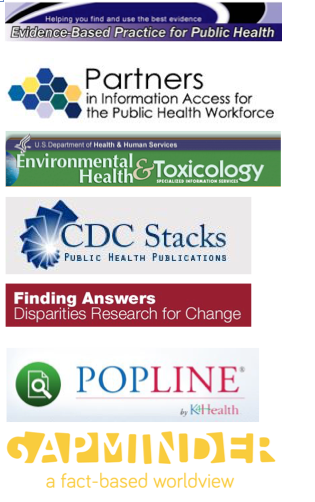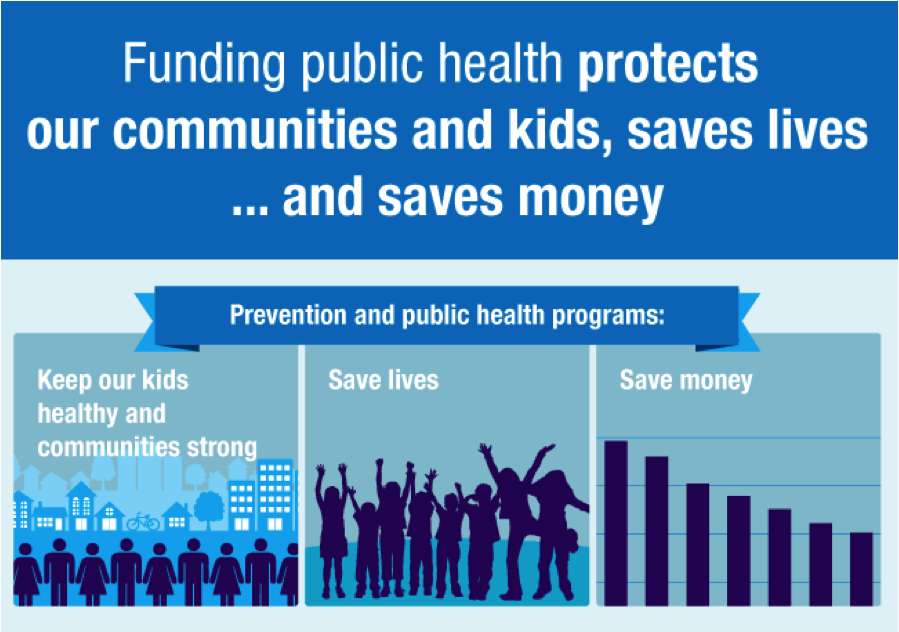Hello! I’m Julie Goldman, a librarian at the University of Massachusetts Medical School’s Lamar Soutter Library. I want to introduce you to a number of high-quality public health resources, most of them freely available, and all that can help you as evaluators understand and support your communities, your research, and your work. Public health information comes in many different forms from education materials, research articles, white papers, and policies to raw data on lifestyle characteristics, disease prevalence, healthcare utilization – or, basically, all scientific output that applies to day-to-day life.
Here are a few takeaways when looking for public health information:
Lessons Learned:
- Public health is multidisciplinary; it is not just doctors and nurses! Other fields include:
- Health educators
- Community planners and policy makers (e.g., local, regional or state health boards)
- Scientists and researchers
- Biostatisticians
- Occupational health and safety professionals
- Health promotion should happen everywhere – and include everyone!
- Information should be available to all communities, domestic and international
- Addressing health disparities should be a key focus. Examples include: healthcare access, infectious diseases, environmental hazards, violence, substance abuse, and injury.
Hot Tips: Evidence-based practices inform decisions:
- Using the best available scientific evidence leads to informed decisions
- Pro-active prevention can lead to measurable impact
- Spending on prevention saves money long-term
Visit the American Public Health Association’s website for public health news, webinars and useful infographics like the one below that visually tell the public health story. Many of these (or similar ones from a variety of sources) can be used to help relay the messages of evaluation data.
Public Health Infographic, © 2016, American Public Health Association
Rad Resources: The table below provides a brief overview of many of the public health collections that offer freely available resources on populations, agencies, public health news and policy briefs, and much more.
 Lamar Soutter Library Evidence-Based Public Health Portal.
Lamar Soutter Library Evidence-Based Public Health Portal.
A collaboration of U.S. government agencies, public health organizations, and health sciences libraries highlighting news, public health topics, policies, jobs, and education.
The National Library of Medicine, National Institutes of Health, offer many public health resources such as Haz-Mat, Toxnet, and IRIS.
A free, digital archive of scientific research and literature.
Explore and evaluate projects aimed at reducing racial and ethnic health disparities. From the Robert Wood Johnson Foundation.
The world’s most comprehensive collection of population, family planning and related reproductive health and development literature.
An image-based review of world demographics and statistics.
Many libraries, at both public and private institutions, as well as public libraries can assist with evaluation and research, and access to all levels of public health information. Many librarians are highly motivated to work with a research and/or evaluation team to help navigate public health data and resources. Re-read these two blog postings from previous years to learn more about collaborating with a librarian to help explore the vast array of information that can help with the development, conduct, and analysis of evaluation projects: “Library Resources and the Important Role They Play in Evaluation Work” and “Today’s Librarian and Building an Evaluation Team.”
Do you have questions, concerns, kudos, or content to extend this aea365 contribution? Please add them in the comments section for this post on the aea365 webpage so that we may enrich our community of practice. Would you like to submit an aea365 Tip? Please send a note of interest to aea365@eval.org . aea365 is sponsored by the American Evaluation Association and provides a Tip-a-Day by and for evaluators.

